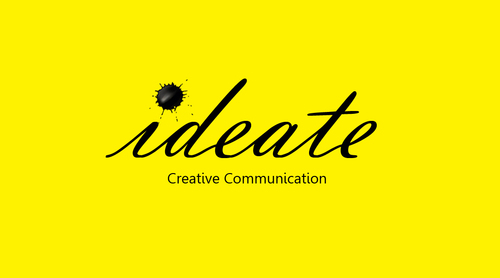• \EYE-dee-ayt\ • verb
1 : to form an idea or conception of (something)
2 : to form an idea
Examples:
Jocelyn used the lunch hour at the education seminar to talk with other teachers and ideate new activities to use in the classroom.
"Most of us don't dedicate any time to thinking and ideating. To think well, you need to be willing to fail well." —Andy Lark, Fortune, 7 Mar. 2016
Did you know?
Like idea and ideal, ideate comes from the Greek verb idein, which means "to see." The sight-thought connection came courtesy of Plato, the Greek philosopher who based his theory of the ideal on the concept of seeing, claiming that a true philosopher can see the essential nature of things and can recognize their ideal form or state. Early uses of idea, ideal, and ideate in English were associated with Platonic philosophy; idea meant "an archetype" or "a standard of perfection," ideal meant "existing as an archetype," and ideate referred to forming Platonic ideas. But though ideate is tied to ancient philosophy, the word itself is a modern concoction, relatively speaking. It first appeared in English only about 400 years ago.






Post a Comment